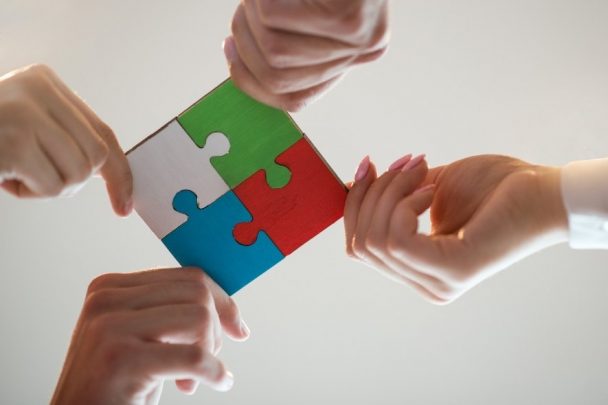Description
Students’ active involvement, effective learning, and soft skills are KEY elements in 21st-century education, and we can enhance them through effective cooperation.
If educators can support collaborative learning environments, students can work together to reach relevant shared goals, acquiring notions and competencies that will make a difference in their own lives.
Collaboration and cooperation in learning environments enable learners to:
- Feel Active and Useful;
- Feel Integrated into a Group;
- Learn mutual Trust and Respect;
- Have better Motivation and Self-esteem;
- Access Learning Contents in alternative and enjoyable ways;
- Get Inspiration from others, as well as Creativity and Learning-to-learn skills;
- Effectively deal with the Pros and Cons of living together and learning together.
As educators, trainers and teachers know, managing collaboration, cooperation, as well as working groups and teams requires skills. This course aims at fostering them through active reflections and hands-on activities that will be suitable for different subjects and applicable at different levels.
By the end of the course, you will know how to better manage collaborative and cooperative learning strategies in your class, modelling activities that make learning more fun and effective, improve school relationships, and promote your students’ personal and social growth.
What is included
Learning outcomes
The course will help the participants to:
- Acquire clear notions about collaboration and cooperation;
- Analyze pros and cons of a variety of collaborative strategies;
- Practice a great range of cooperative activities;
- Be aware of possible precautions to take in team work;
- Incorporate ideas, techniques, and cooperative tasks in their own lessons for determined learning goals.
Tentative schedule
Day 1 – Course introduction
- Introduction to the course, the school, and the external week activities;
- Icebreaker activities;
- Presentations of the participants’ schools.
Day 2 – A collaborative classroom environment
- Preliminary notions;
- A collaborative classroom environment;
- Dangers and cautions of group work;
- Dividing students into groups.
Day 3 – A collaborative classroom
- Strategies for collaborative brainstorming;
- Techniques for group discussions;
- Cooperative tasks.
Day 4 – Class projects & group assessment
- Cooperation: class projects;
- Peer and Group Assessment.
Day 5 – Cooperative learning strategies in the classroom
- How – when – for what can I use cooperative learning strategies in my class;
- Create lesson plans for your own students.
Day 6 – Course closure & cultural activities
- Course evaluation: round-up of acquired competencies, feedback, and discussion;
- Awarding of the course Certificate of Attendance;
- Excursion and other external cultural activities.







